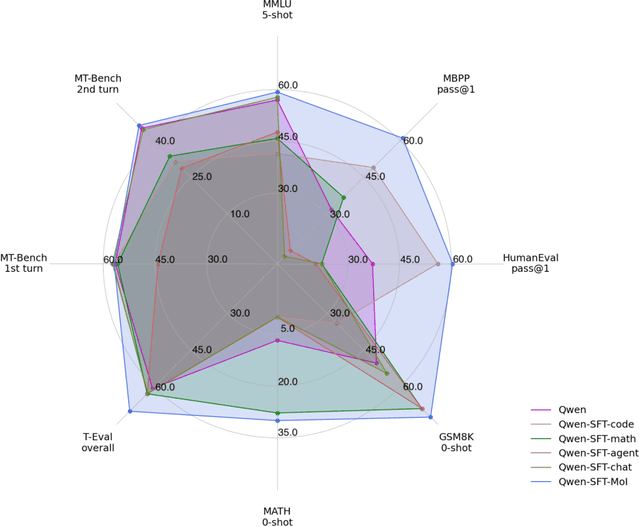Mixture-of-Instructions: Comprehensive Alignment of a Large Language Model through the Mixture of Diverse System Prompting Instructions
Paper and Code
Apr 29, 2024



With the proliferation of large language models (LLMs), the comprehensive alignment of such models across multiple tasks has emerged as a critical area of research. Existing alignment methodologies primarily address single task, such as multi-turn dialogue, coding, mathematical problem-solving, and tool usage. However, AI-driven products that leverage language models usually necessitate a fusion of these abilities to function effectively in real-world scenarios. Moreover, the considerable computational resources required for proper alignment of LLMs underscore the need for a more robust, efficient, and encompassing approach to multi-task alignment, ensuring improved generative performance. In response to these challenges, we introduce a novel technique termed Mixture-of-Instructions (MoI), which employs a strategy of instruction concatenation combined with diverse system prompts to boost the alignment efficiency of language models. We have also compiled a diverse set of seven benchmark datasets to rigorously evaluate the alignment efficacy of the MoI-enhanced language model. Our methodology was applied to the open-source Qwen-7B-chat model, culminating in the development of Qwen-SFT-MoI. This enhanced model demonstrates significant advancements in generative capabilities across coding, mathematics, and tool use tasks.
 Add to Chrome
Add to Chrome Add to Firefox
Add to Firefox Add to Edge
Add to Edge